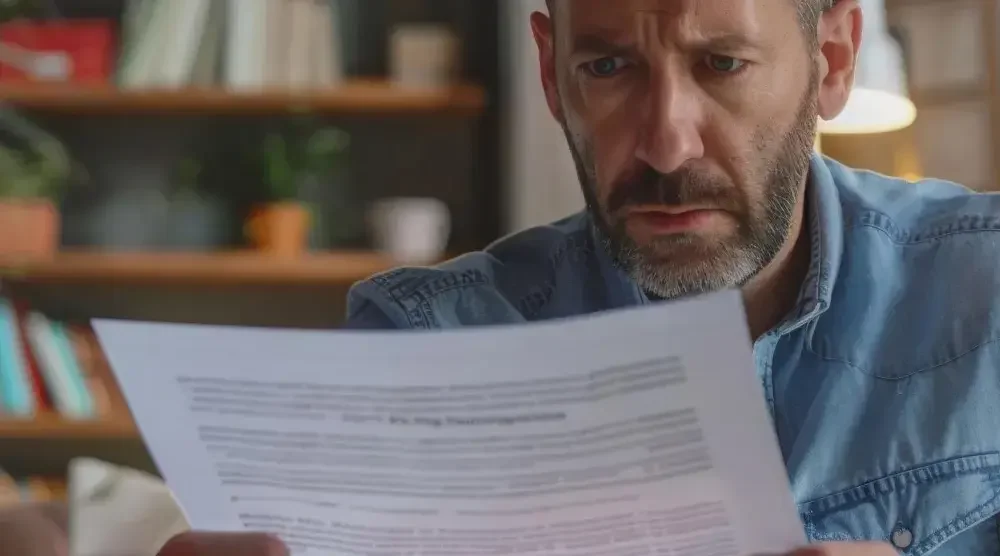A demand letter outlines a dispute the sender has with the letter’s recipient and demands the recipient take a certain action to fix the problem. The goal of a demand letter is to find a resolution between the parties involved about a given issue with the intent of avoiding taking the issue to court. A demand letter is usually written by an attorney.
Demand letters are used in pre-legal actions, but they indicate the looming potential of legal action. People can send a demand letter to negotiate issues related to debt collection, contract breaches, and other commonplace disputes.

Purpose of a demand letter
A demand letter is a formal document that tells the recipient to take prompt action to fix a specific problem before the sender initiates legal proceedings to resolve the dispute.
Some key characteristics of this kind of letter
- A demand letter is typically not the first communication the sender directs to the recipient on the issue in question. The letter’s sender usually starts with more casual and amicable reminders and requests.
- A demand letter is usually sent via certified mail, giving the sender confidence that the recipient has indeed received it and is aware of the demand it includes. The sender should keep the post office receipts and make sure to request a return receipt.
- A demand letter’s purpose is for prompt restitution about a certain problem or action on an issue from the recipient. The goal is to address a breach of contract or other legal wrong, such as to have the recipient provide adequate compensation to address a problem.
- A typical demand letter carries weight in legal proceedings. It is part of the public record, and most courts consider sending this type of communication to be a measure of good faith in working toward a resolution to the problem at hand.
If you send a demand letter, you can expect one of three potential outcomes
- The recipient agrees to comply with the letter’s demand, which satisfies the sender and puts the issue to rest.
- The recipient ignores the letter’s demand, which may prompt the sender to take legal action.
- The recipient refuses to comply with the letter’s demand, which may prompt the sender to take legal action.
The sender can typically expect a response within 30 business days of the day that the recipient got the letter. If there is no response by then, the recipient is likely ignoring the letter.
At that point, the sender is not obligated to take legal action if the recipient ignores the demand or refuses to do what the letter requests. However, it is unlikely that the sender will see a satisfactory resolution of the problem without legal action if the letter does not prompt the recipient to take the requested action.
Key elements of a demand letter
Demand letters need not be long and can benefit from being succinct. Within that succinct format, all demand letters must include several components:
- Clear statement of the issue: A demand letter must clearly articulate the problem the sender is seeking the other party to remedy. For example, it might detail unpaid medical bills or describe personal injuries. Getting input from a legal professional in crafting this explanation can ensure the issue is expressed in a way that makes the legal wrong clear.
- Parties involved: The letter must list the parties involved in the dispute, including the sender and the recipient.
- Facts and evidence: A demand letter must describe the facts involved in the situation and any evidence that supports those facts. In the case of medical bills, the evidence might include communications from the insurance company. A legal professional can ensure these are laid out clearly in a way that supports the overall complaint.
- Specific demands: A demand letter must provide directions the recipient can follow to resolve the issue and circumvent legal action. The advice of a legal professional is important here, as the requested remedy must properly right whatever legal wrong is involved.
- Deadline: A demand letter must provide a specific date by which the other party needs to take the requested action. In the case of a letter aiming to collect a debt, for instance, it must give a day by which the recipient must pay the owed amount or face legal action. A legal professional can advise on suitable timelines for various actions.
6 reasons to hire a debt collection attorney
There are numerous reasons to work with a lawyer to send a demand letter. If your letter is intended to collect on a debt, hire an attorney to ensure your letter complies with the law and is most likely to get the response you want.
Here are six reasons to hire an attorney to help draft your demand letter:
Legal expertise
Debt collection attorneys are familiar with the legal requirements and nuances of state and federal law, so the letter will use appropriate legal language and be compliant with the laws that apply to the situation.
Credibility
A demand letter drafted by an attorney is apt to have a higher degree of credibility with its recipient than one drafted by the other party, which may make the recipient more likely to take the notice seriously and respond promptly.
Strategic advice
Attorneys can advise on the best approach to motivate particular debtors to pay, such as using the letter to convince the recipient of their low chance of success in potential litigation or making an offer of a payment plan or settlement before taking legal action.
Avoiding legal pitfalls
An attorney can help you avoid getting into legal trouble with your debt collection communications, which come with the potential of unintentionally harassing or threatening a debtor.
Efficiency and effectiveness
Since attorneys create demand letters as part of their professional duties, they have experience that allows them to undertake the process more efficiently and strategically, getting you a faster and more effective result.
Litigation readiness
Because litigation, such as a small claims court case, might be the next step if the demand letter does not resolve the issue, having an attorney involved from the beginning of the process ensures continuity and well-versed representation if the case goes to court.
Legal considerations
A demand letter is not a legal requirement but has weight in legal proceedings, as courts generally like to see that you have made a serious attempt to resolve the issue before litigating. Doing so means you aren’t wasting the court’s time with a matter that could have been resolved in other ways. Further, the demand letter can serve as evidence of the recipient’s inaction to right a legal wrong. Supporting the demand letter with any written agreement between the parties can help your court case. Judges will look favorably on professional, legally sound demand letters.
One important consideration in drafting a demand letter is compliance with state and federal laws that pertain to the problem at hand. A demand letter that seeks repayment of a debt, for example, must comply with the Fair Debt Collection Practices Act (FDCPA), which regulates how debts can be collected. An attorney will be well versed in the legal precedents with which demand letters and legal proceedings to recoup debts must comply.
FAQs
What happens after my lawyer sends a demand letter?
After your lawyer sends a demand letter, the recipient can (1) comply with the demand in the letter, (2) ignore the letter, or (3) reply with a refusal to comply with the demand or its terms. After the recipient has made this choice, your lawyer will advise whether and how to take legal action to get your demand met.
How long after a demand letter can I expect a settlement?
The demand letter can set a timeline. Your letter will include a deadline by which the recipient needs to take action to rectify the problem, and that is the date on which you can expect the situation to be settled if the recipient is cooperative.
What happens if someone ignores a demand letter?
If you receive no response after the deadline set forth in your letter, you can discern that the recipient is ignoring the letter. At that time, you can decide on the next step to take, which might be sending a follow-up, attempting to schedule a date when the settlement negotiation process begins, or preparing to promptly pursue legal remedies against the recipient.
What should I avoid saying in a demand letter?
In a demand letter, you should avoid writing anything that can be construed by the recipient as harassment or a threat. You should also avoid providing too many extraneous details or your feelings about the situation. An attorney is the best resource to advise what should and shouldn’t go in a demand letter.
Can I write a demand letter without a lawyer?
Yes, you can write a demand letter without a lawyer, but the chances of it being taken seriously by its recipient are far lower than if you have one drafted and sent by an attorney. A self-drafted demand letter also may not hold as much sway with the court in eventual litigation because it may not hold up to legal scrutiny. It is always a good idea to get guidance from a lawyer to help you create a demand letter.


